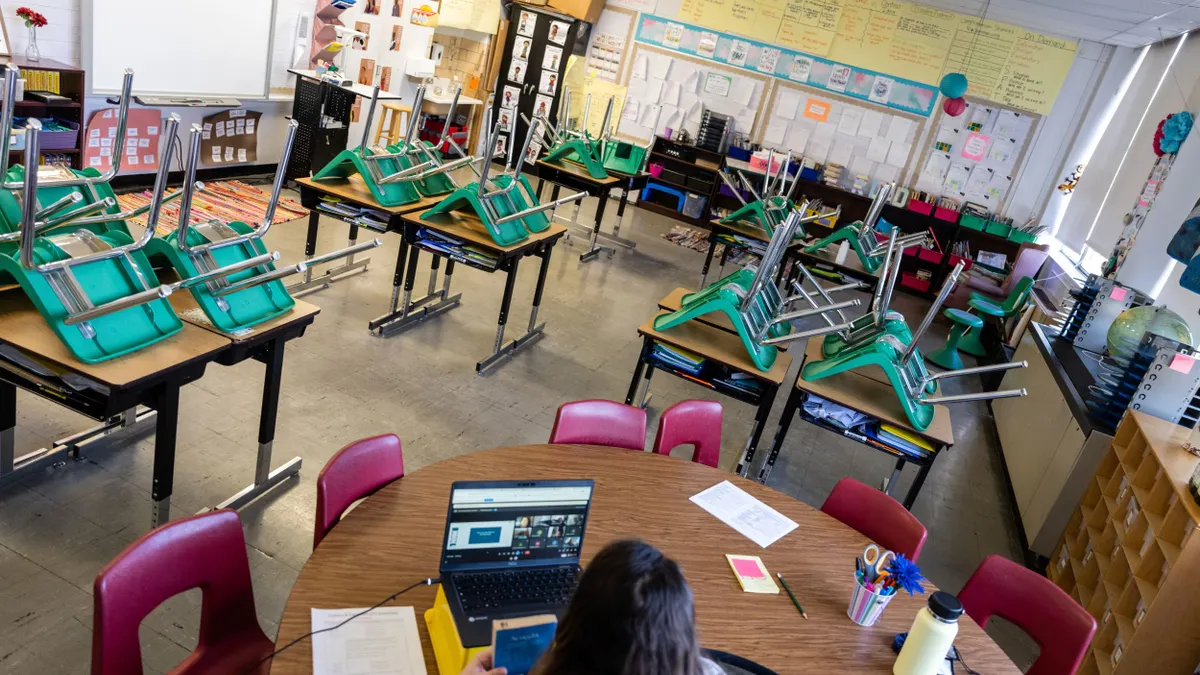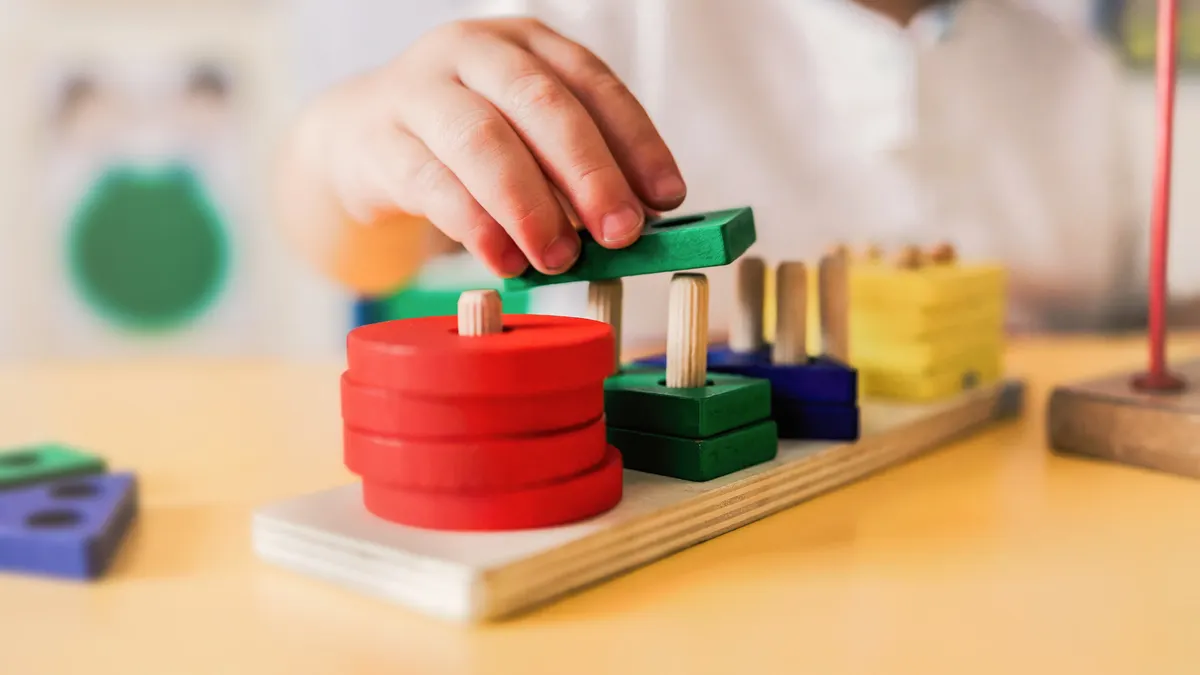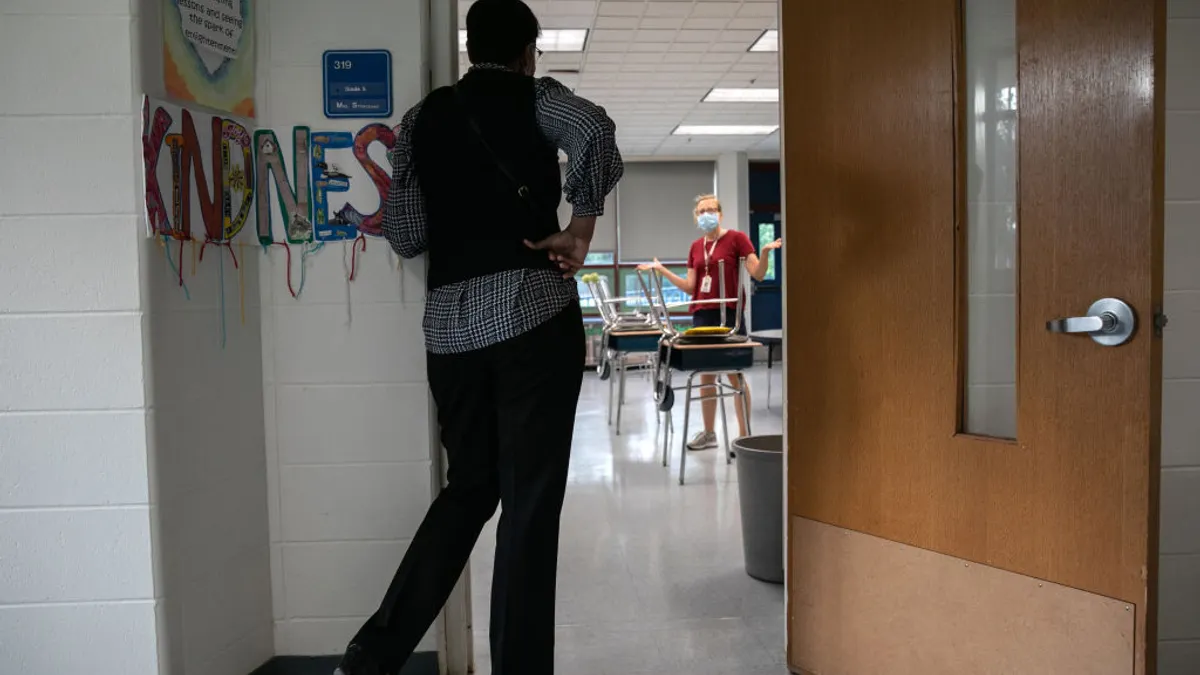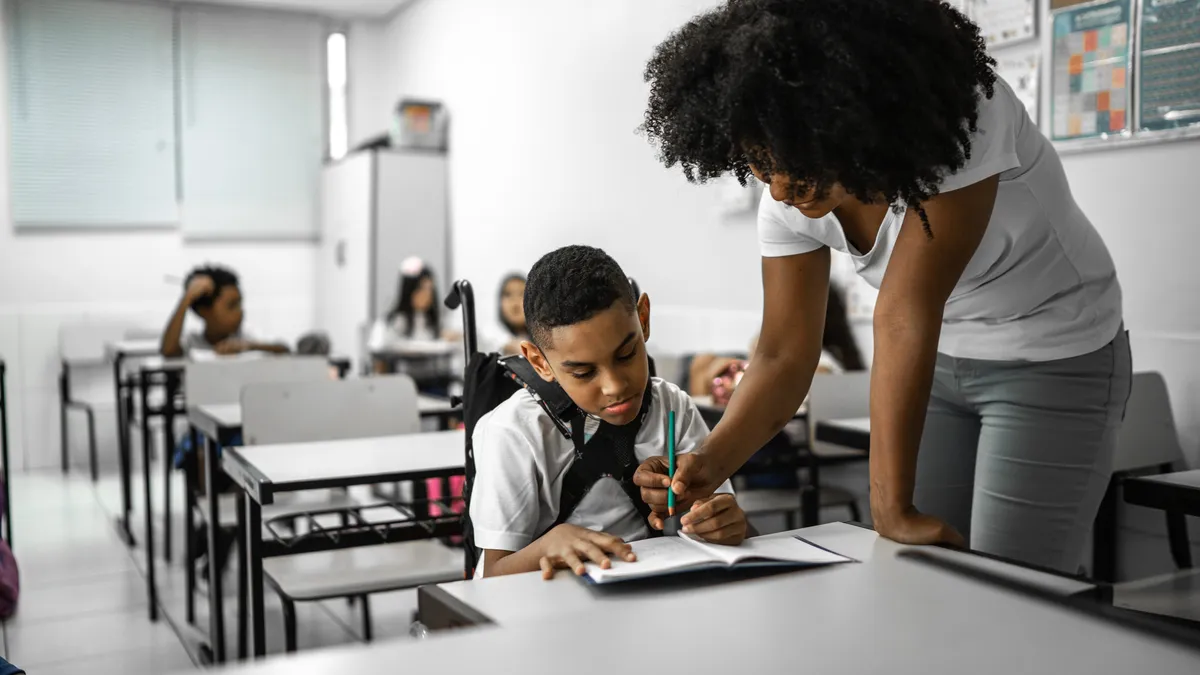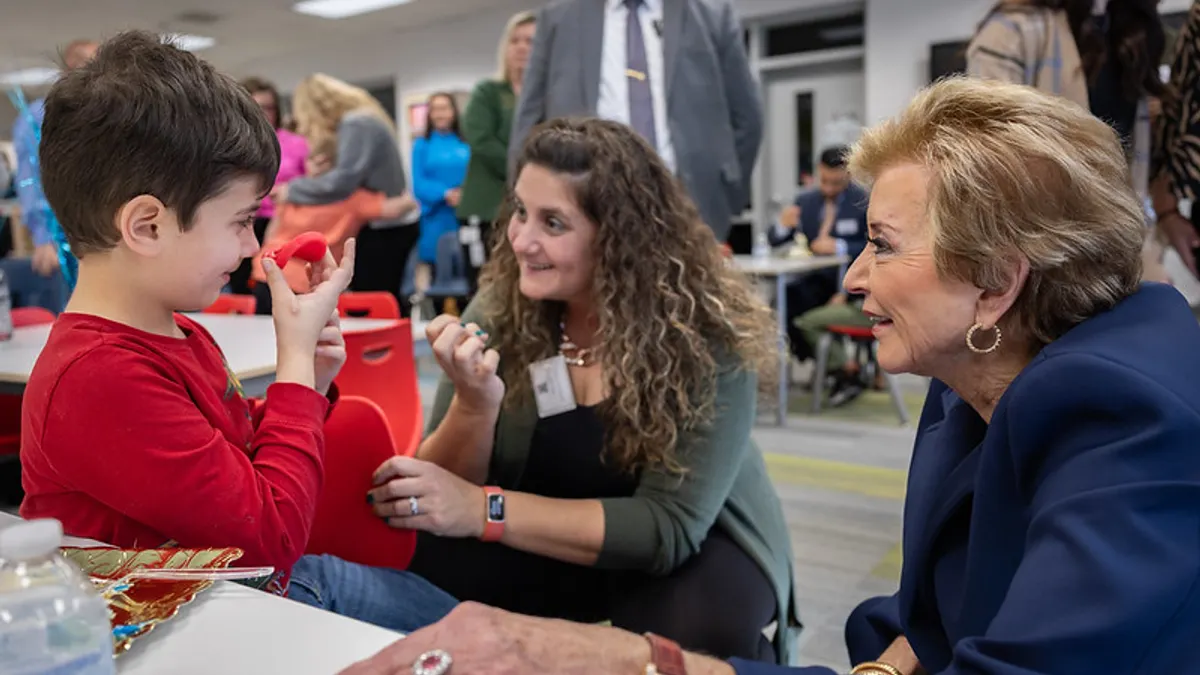Catherine Truitt is state superintendent of public instruction for North Carolina.
Our education system is facing a critical challenge. Too often, it fails to meet the needs of students and employers alike. Many students are unable to see a clear purpose in their learning, contributing to the rise in chronic absenteeism, which nearly doubled from 15% to 26% between 2018 and 2023 and remains significantly above pre-pandemic levels
Simultaneously, schools need to adequately prepare students for a rapidly evolving workplace. Three out of five employers report that graduates are ill-prepared for even entry-level jobs. The root of this issue lies in the education system's overemphasis on specific content knowledge at the expense of developing durable skills. This focus drains the joy from learning for students and teaching for educators, with nearly 90% of teachers stating that burnout is a serious problem.

Enter: Durable skills — such as creative and collaborative problem-solving, critical thinking and empathy — which are essential to preparing students for success in any environment. According to America Succeeds, 85% of job success is attributed to these skills, so we know they are in high demand. To address this gap, educational strategies need to prioritize rigorous academic content alongside these durable skills.
Over the last decade, Battelle for Kids, a national nonprofit, and its EdLeader21 Network have helped more than 135 school districts and three states — including North Carolina — reimagine education using the “Portrait of a Graduate”. As a result, participating schools have more effectively connected teaching and learning to key workforce needs while re-engaging students and teachers.
North Carolina’s example
In March 2022, the North Carolina Department of Public Instruction led a statewide initiative in partnership with Battelle for Kids to define the skills and mindsets students need for success after high school. North Carolina’s Portrait of a Graduate launched in October 2022, and it serves as the North Star for the state’s students and their future workforce success.
North Carolina saw a critical need for students to develop skills outside of what we’d consider traditional “technical” skills and academic knowledge. You can be the most knowledgeable person in the room, but if you can’t collaborate and communicate with others, adapt to challenging situations, and think critically about the information presented to you, you’re not going to be able to excel in the 21st-century workforce.
Data shows that durable skills are in high demand among employers, and these skills benefit students regardless of the path they choose — be it college, a career or the military.
North Carolina’s accountability system needed to provide a more comprehensive picture of what student success means. Developing a Portrait of a Graduate would give a more balanced measure, demonstrating students’ growth and achievement, and ensuring their readiness for life after high school.
The process of creating this framework was regionally led, because we’ve found that districts benefit when their community is directly engaged in shaping the work. The process involved nearly 1,200 residents from across the state.
Through multiple discussions, design teams composed of North Carolinians worked together to identify the durable skills students need for success. These skills were chosen based on their relevance to both current and future challenges in a rapidly evolving world.
In total, the North Carolina statewide Portrait identifies seven skills that students should develop to thrive in a world that demands technology use, human interaction and innovation:
-
Adaptability.
-
Collaboration.
-
Communication.
-
Critical Thinking.
-
Empathy.
-
Learner’s Mindset.
-
Personal Responsibility.
Under each competency, teams included statements describing the skills North Carolina students need to master.
The Portrait gives the state’s educators a framework to design instruction. But it’s only a starting point, and each school system has worked hard to turn this vision into reality.
In August 2023, the state released a comprehensive set of resources to help schools and teachers complete this work, including “I Can” statements and rubrics for integrating the Portrait’s durable skills into student learning experiences.
The “I Can” statements place students at the center of assessing and improving their performance in each durable skill. They’re meant to be used by students to self-assess their work and reflect on their performance during and after each learning experience. These statements clarify student expectations and help them understand the skills they must work towards.
In addition, a team of North Carolina teachers has developed a set of student-tested, standards-aligned performance tasks for incorporating durable skills into lessons and measuring students’ growth. These performance tasks are being shared with school and district leaders this summer so they can start appearing in classrooms this fall.
We’re confident that infusing hands-on learning and career exposure into everyday lessons will increase student engagement and show them the real-world relevance of their education.
Proven impact
Schools that have transformed their systems to create a shared vision around essential skills identified by their communities have seen powerful results from this work.
By redesigning instruction to emphasize these critical skills, educators have broadened their focus beyond test scores to include practical, real-world applications of knowledge. This approach has fostered greater student independence, deeper learning of content, and infused education with meaning and joy.
With workplace requirements changing rapidly, schools must ensure that their students are future-ready and equipped with the durable skills fundamental to success.
By fostering curiosity and passion for learning, and helping educators find renewed purpose, transforming school systems to integrate these essential skills into rigorous academic instruction supports both student and teacher development.

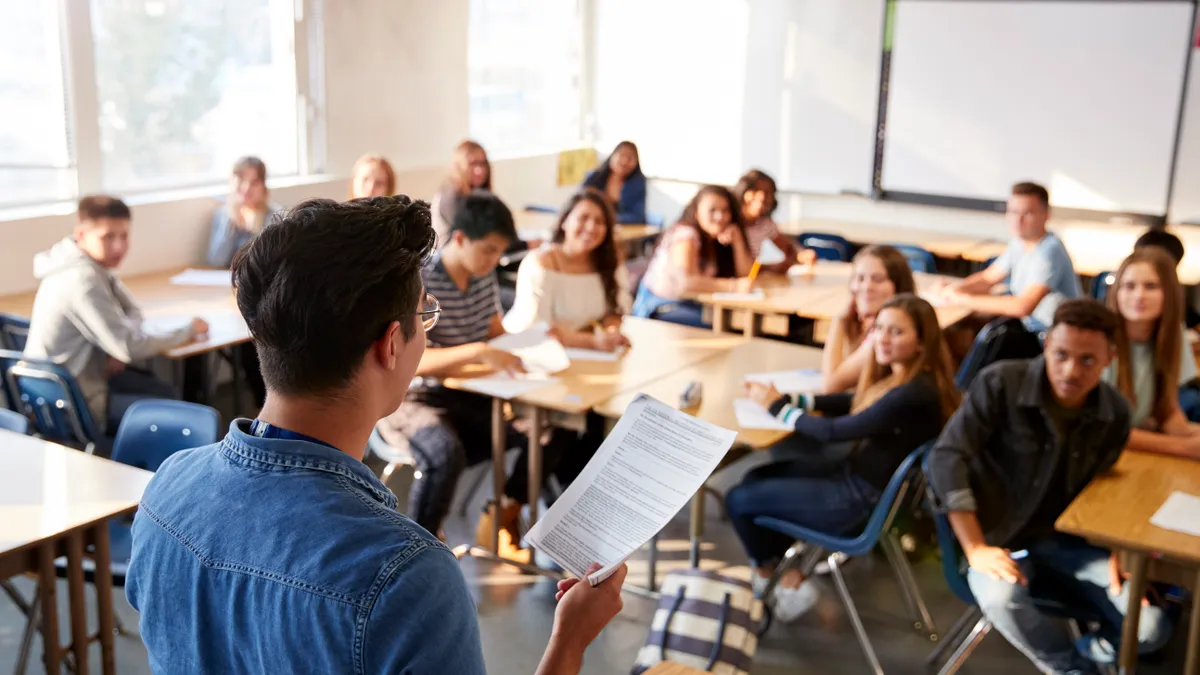




 Dive Awards
Dive Awards
